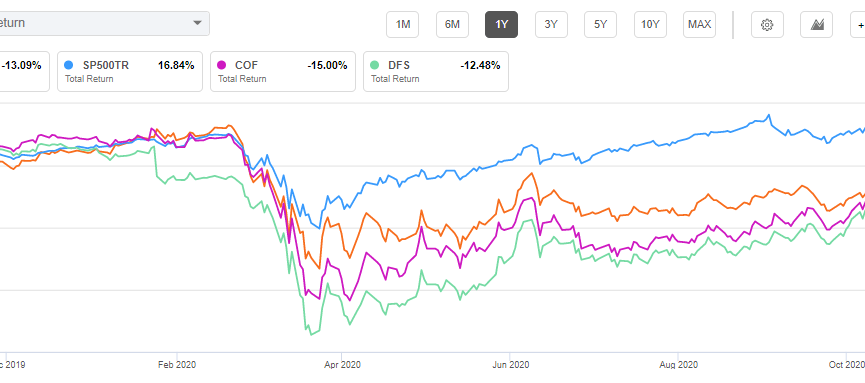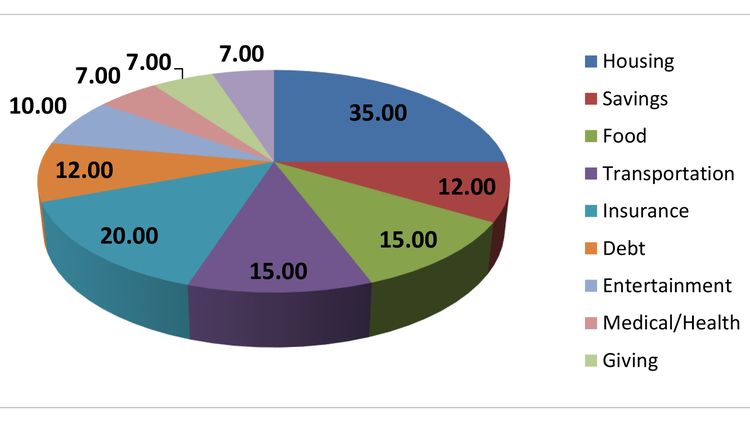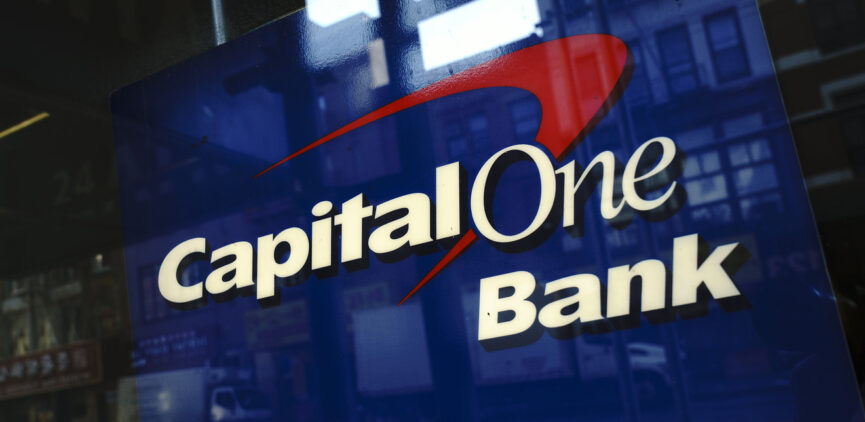Debt Settlement: How Its Works + Pros and Cons
Have you gotten an offer to pay off credit card debt for less than the total amount due?
This may seem like a gift. Settling $6,000 of credit card debt for $4,000, for example, leaves you with $2,000 you didn’t have to pay.
Instead of staying in perpetual debt, making monthly payments until the end of time, you can see a light at the end of the tunnel.
Or so you think.
While the debt may be gone and the collection calls may stop, settled debt can create other problems.
These problems include higher taxes, a big hit to your credit score for years, and having to come up with the money to pay the debt off in a lump sum.
For many people, the promises of debt settlement offers really are too good to be true.
Table of Contents:
How Debt Settlement Works
Negotiating a Debt Settlement
Using a Debt Settlement Company
DIY Debt Settlement
Is Debt Settlement a Good Idea?
How Much Does Settled Debt Affect Your Credit?
Debt Settlement Isn’t For Everyone
How Debt Settlement Works
In a debt settlement, a creditor agrees to reduce the principal amount you owe if you pay a lump sum that’s less than the full amount you owe. The lump sum can range from 40 to 80 percent of your balance.
Debt settlement offers can be initiated in several ways:
By a Credit Card Company: If you have a large amount of unsecured debt with a credit card company and have fallen behind on your monthly payments, you may get a letter from the company offering to settle the debt.
By a Collection Agency: If you’ve fallen way behind or defaulted on an account, the original creditor may have sold your debt to a collection agency. The agency could propose a deal.
By a Debt Settlement Company: If you’ve hired a debt settlement company to help you get out of debt, the company may hammer out deals with your credit card companies as part of a debt consolidation plan.
By You Directly: You could propose a plan yourself by contacting the credit card company directly. Be sure to get the agreement in writing before sending in money.
Debt settlement will work only with unsecured debt such as credit cards, personal loans, and other bills that have gone into collections.
If you’re behind on your mortgage or auto loan, you’re not going to be able to settle because a car can be repossessed and a house can be foreclosed on. Debt settlement also will not work with student loans in most cases.
Why Would Creditors Accept Debt Settlements?
Two situations could motivate your creditor to propose (or agree to) a settlement offer:
If you’ve missed monthly payments for several months.
If you are delinquent on the account.
If the company believes you can afford your payments, it’ll be less likely to settle.
However, if the company believes you may enter Chapter 7 bankruptcy, it will be more likely to propose or agree to a debt settlement agreement. Since credit card debt is unsecured, creditors wouldn’t get any money if you entered this kind of bankruptcy.
At least with a debt settlement, your creditor could recover part of the money you owe.
Can A Debt Settlement Offer Be Negotiated?
If you get a debt settlement offer, know that you can negotiate for a better deal. You can also contact your creditor first and ask for a settlement, or you can hire a lawyer or debt settlement company to seek debt collection settlements for you.
When you negotiate, let the creditor know about financial hardships you’re facing. If you have huge medical bills or just lost your job and have no income, your creditor or debt collector should know.
If a debt collector knows you can’t pay many of your bills, and that an old credit card bill with a sky high interest rate isn’t high on your priority list, you can get a better deal.
Paid In Full vs. Settled
If a creditor won’t drop to a lower payoff and you pay the sum they propose, ask to have your credit report show your debt as “paid in full” instead of “settled.” Settled debt can hurt your credit score for years.
Conduct your entire debt settlement process in writing. Get all of the details in writing, such as the payment amount and due date. Don’t send any money until you get the offer in writing and have reviewed it, possibly with a lawyer. It’s a binding contract and you should read the terms carefully.
Debt Settlement Companies
The do it yourself approach to debt settlement takes time and expertise. You could get professional help with your debt settlement process by hiring a debt settlement company to negotiate on your behalf.
Instead of paying your credit card issuer, you pay the debt settlement company directly an agreed-upon amount each month and the company pays your creditor after reaching a settlement agreement.
This strategy isn’t for everyone. It can get expensive, and your credit score could hit rock bottom. For many consumers, hiring a debt settlement company should be a last resort.
Pros & Cons of Debt Settlement Companies
Pros
They know how to negotiate with creditors.
By law, they can’t charge upfront fees.
They will probably be more successful at negotiating than you.
Cons
Your credit score will tank because you stop making payments.
Collectors won’t stop making collection calls in the meantime.
You’ll have to pay the debt settlement company 15% to 25% of your debt relief.
Debt Settlement Scams
You should also be aware that some of these companies have been found to be scams, or at least not totally honest with consumers.
The Consumer Financial Protection Agency filed a lawsuit in 2017 against Freedom Debt Relief, the nation’s largest debt settlement services provider. The lawsuit accuses Freedom of charging consumers without settling their debts as promised, makes customers negotiate their own settlements, and misleading them about fees.
Some debt settlement companies may insist you use an intermediary, when in fact you can contact a creditor yourself to settle.
Some of these companies advise people to stop paying on active accounts and to stop speaking with their creditors. Withholding payments to save up for a settlement can lead to interest and penalties.
Advance payment may be required by some debt settlement companies. The Federal Trade Commission (FTC) forbids this and only allows money to be collected once a debt is lowered or settled.
Do-It-Yourself Debt Settlement
When you have one or two delinquent accounts, I recommend handling your own debt negotiations. Just call the credit card company and ask about debt relief options.
You could ask for a lower interest rate, ask to skip a payment if that’s helpful, or you could ask to have late fees waived and punitive interest rate hikes rescinded.
Or, you could propose a lump sum payment in exchange for reporting the account paid in full to the credit bureaus. It never hurts to ask for the very best settlement plan for you.
And if your credit score still qualifies you for a new account, consider getting a balance transfer card to consolidate other accounts.
Don’t be nervous about settling with creditors. The most important thing is to have enough money in your savings account to pay a reasonable lump sum payment.
Be sure to ask your creditor to remove the negative entry from your credit report in exchange for your lump sum payment.
I’ll say it again: Get your debt settlement agreement writing before paying anything!
Pros & Cons of DIY Debt Settlement
Pros
Lessens the negative impact on your credit score.
No additional fees.
You can negotiate the removal of negative entries on your credit report.
Cons
You have to negotiate the settlement yourself which takes time and effort.
You probably have less experience negotiating with creditors than debt settlement companies.
Is Debt Settlement a Good Idea?
If you’re happy with a debt settlement offer you’ve received, then you may want to proceed.
But be aware of the downsides before you agree to the terms:
Forgiven Debt is Taxable Income
The Internal Revenue Service considers forgiven debt of $600 or more taxable income. If you owe $6,000 but agree to pay only $4,000, you’ll need to pay income tax on the $2,000 of debt relief.
An extra two grand in taxable income isn’t such a huge deal, but if you’re getting $20,000 or $30,000 in debt relief in one year, you could wipe out a chunk of your IRS tax refund. Then, you may owe even more on your state tax return.
Settled Debt Wrecks Credit Scores
Your credit score could continue to fall after a debt settlement agreement. Paying less than the original amount of debt will be reported to the credit bureaus as a debt settlement, which can stay on your credit report for up to seven years.
While a settlement is better for a credit score than having an account reported as unpaid, it’s almost as bad as having a bankruptcy.
Many debt relief companies want you to stop making monthly payments while they negotiate. They want the money you’d use on payments to finance a separate account they’d use to settle your debt. Trouble is, all the late payments and missed payments will also hurt your credit score for years to come.
The Lump Sum Payment
Sure you’re not having to pay the full amount, and that’s great. But the amount of debt you do pay will be due in one lump sum payment.
Let’s use our earlier example of $6,000 in total debt being negotiated down to $4,000. You’d have to come up with $4,000 in cash which isn’t easy, especially when you’re in debt!
You could ask for a payment plan, but few creditors agree to this. Even when they do, they’d probably want four payments of $1,000 — still not an easy chunk of change to cough up.
Debt Settlement Companies Have High Fees
If you’re working with a debt settlement company, expect to pay fees equal to 15% to 25% of the amount of debt settled. For $2,000 in debt relief, you’d owe $350 to $500 in fees.
The Scam Factor
People who shop for debt settlement programs are often at the end of their ropes. Unfortunately, some debt relief services take advantage of people in dire financial situations.
Before signing up with any debt settlement company, check with your state’s attorney general’s office about complaints. You can check with the Consumer Financial Protection Bureau or the Better Business Bureau too.
These red flags can be signs of a scam:
Wrong Types of Debt: If a company says it can help with secured debt such as a car loan or with a student loan, know that the company isn’t being honest. An auto lender would simply repossess your vehicle.
Too Good to Be True: If a debt management company says it can settle your debts for pennies on the dollar, walk away immediately.
Requests for Information: A legit debt settlement company or credit counseling service doesn’t need your bank account number. It should set up an escrow account both parties can access.
Bankruptcy May Be A Better Option
Debt settlement may be your last resort if you’re facing hardship and debt you can’t possibly repay.
Chapter 7 Bankruptcy may be a better way out. Bankruptcy could provide debt relief and let you start rebuilding your financial life right away.
Bankruptcy can stay on your credit report for 10 years, and you may still need to make payments toward your debt.
Nonprofit Organizations Can Also Help
The National Foundation for Credit Counseling could help you talk through your debt relief options.
A lot of consumers prefer this method since they know a debt settlement company seeks to make a profit from their debt management plans.
Nonprofits like the NFCC can help you create a debt management plan which considers your entire financial picture.
Nonprofits typically can’t take action for you, but a credit counselor could help you figure out what action to take.
How Much Does Debt Settlement Affect Your Credit Score?
Settled debt could knock 100 points off your credit score right off the bat. That’s a big hit. The blemishes could last up to seven years, but over time the impact should slowly diminish.
But you have to consider other factors, too.
Late Payments or Missed Payments: While you negotiate a debt settlement — or while a debt settlement company negotiates on your behalf — you could be piling up missed or late payments. These will affect your credit score.
Closed Accounts: If closing your credit card account is part of the debt settlement, the closed accounts could also hurt your credit picture. Part of your credit score comes from the amount of credit you have available.
Doubly Bad: If a collection agency has bought your debt, it could appear on your credit score twice: once through the debt collector and once through the original creditor.
How Long Does It Take to Improve Your Credit Score After Debt Settlement?
Eventually, your credit score should recover from the trauma of debt settlement and its associated derogatory credit marks. But your credit score may get worse before it gets better.
For the first three or four months after a debt settlement agreement, expect to see only bad news when you check your credit report. Over time, things will settle down. Assuming you don’t make new mistakes in borrowing, you could start to see an improvement within a year.
But for three or four years expect to have a hard time borrowing money. After that, your smart credit decisions will start to balance out your older mistakes. At that point, you’re on the road to recovery.
As I said above, you can speed up this process of recovery by getting your creditor to report “paid in full” instead of “settled debt” on your credit report. When you’re making a lump-sum payment, get this agreement in writing before sending a payment.
Debt Settlement Isn’t for Everyone
Debt settlement plans could reduce the total amount of credit card debt. On the surface reducing your total amount of debt makes a lot of sense.
But debt settlement can have negative consequences:
Your credit score will get worse before it gets better.
Lump sum payments can deplete your savings account.
The IRS will charge income tax on debt relief of $600 or more.
A debt settlement company will charge high fees for its help.
That’s why I consider debt settlement a last resort. Try these options first:
Credit counseling: Nonprofit organizations can help you gain perspective.
Balance transfers: If your credit score is strong enough, try to transfer your credit card debt to a new card with lower interest rates.
Consolidation: A debt consolidation loan could also provide debt relief.
Who Should Consider Debt Settlement Offers?
The best candidate for debt settlement is a consumer who faces a large amount of debt that’s unsecured. If the consumer isn’t concerned about a damaged credit score and can come up with cash for lump sum payments, debt settlement can save some money.
As always, before sending a payment, get your agreement in writing, and try to make your payment contingent upon the creditor removing negative information from your credit report.
The post Debt Settlement: How Its Works + Pros and Cons appeared first on Better Credit Blog | Credit Help For Bad Credit.
Read more: bettercreditblog.org









